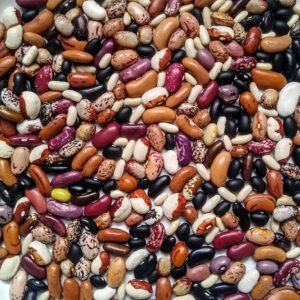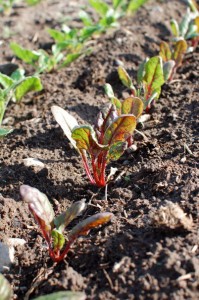
 Perhaps you’ve read the stories lately on GE crops. The Christian Science Monitor reports that farmers are “casting a critical eye on the technology” as they grapple with more weeds and less choice in the marketplace. Or, as the New York Times put it, Monsanto’s skeptics now include farmers and investors “who were once in Monsanto’s camp.” The landscape is changing beneath our feet.
Perhaps you’ve read the stories lately on GE crops. The Christian Science Monitor reports that farmers are “casting a critical eye on the technology” as they grapple with more weeds and less choice in the marketplace. Or, as the New York Times put it, Monsanto’s skeptics now include farmers and investors “who were once in Monsanto’s camp.” The landscape is changing beneath our feet.
These recent reports on the shifts in farmers’ attitudes toward GE crops – and investors’ attitudes toward Monsanto’s stock – are encouraging. The news is important, to be sure. But how do we as an organic community respond?
For starters, let’s recognize that this news validates – and, in fact, is a result of – our work. For decades, advocates who reject biotechnology have been calling into question the environmental and economic benefits of GE crops. As acreage planted to GE crops falls in some states – if only slightly – we can be sure that experience is outweighing hype.
Second, the momentum behind this shift should inspire us to do more. Leveraging this opportunity to showcase working models and solutions that provide farmers the seed they need has never been more important. These models include re-building organic seed systems through participatory plant breeding work, like OSA’s Northern Organic Vegetable Improvement Collaborative (NOVIC) – projects that restore the regional role of farmers and public scientists alike in conservation and crop improvement.
Let’s not be content with these gains. As we stand up to celebrate our work –on organic integrity in the courtroom or disease-resistance in the field – it behooves us not to sit down. As the government, some farmers, and even shareholders, examine problems that are, to us, old news – weed resistance and exorbitant seed prices – let’s set our sights on something bigger at stake: seed as a public resource.
The current intellectual property regime in the U.S. is costing us dearly in the form of consolidation, farmers’ rights, and the privatization of valuable genetics and public research. A shift in policy and mindset that reflects the ethical stewardship of seed as a resource – and does not include patenting our seed heritage – will ensure future generations have the tools and resources they need to protect and improve seed in the face of their own changing landscapes. This is the progress we must seek.
